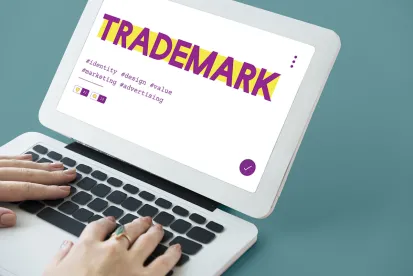Is all press good press? Not for Brooklyn-based skincare company Beauty Concepts using its SKNN+ mark. None other than Kim Kardashian is the subject of another contentious conversation. With the recent launch of her skincare brand SKKN By Kim, came criticism accusing Kardashian of stealing ‘SKKN’ name from black-owned beauty brands. Considering Kardashian’s previous encounters with accusations of appropriating other cultures, the failure to rebrand her new venture doesn’t come as a shock. In 2019, the city of Kyoto urged Kardashian to rethink the naming of her shapewear brand Kimono, explaining the cultural significance of the garment.
Consumers initially likened SKKN By Kim to existing brand SKN by Lori Harvey. Yet, public critique roiled social media and extended its reach to the courts—albeit with a different company altogether, pitting Kardashian, her corporate entity Kimsaprincess Inc., and her cosmetics manufacturer Coty, Inc., which holds a 20 percent stake in Kardashian’s KKW Beauty, against Beauty Concepts LLC, a 4-year-old, a black- and woman-owned, skincare company doing business as SKKN+ that opened a brick-and-mortar location after surviving the pandemic.
In a new lawsuit in the Eastern District of New York, Beauty Concepts v. Kim Kardashian et al., 1:22-cv-03797 (E.D.N.Y.) Beauty Concepts brings claims of trademark infringement and unfair competition, reverse confusion, unlawful deceptive acts, and business practices in violation of New York Gen. Bus. Law §349-50 and other related claims against Kardashian and her fellow defendants in connection with the SKKN by Kim brand and use of the marks on goods and services that the plaintiff says are “identical to, or highly related to, services offered by Beauty Concepts under [its own] SKKN+ trademark.”
Beauty Concepts began using the SKKN+ mark in August 2018 for its skincare products and services. Beauty Concepts claims that it learned of the defendants’ intention to release a skincare line under the brand SKKN and/or SKKN BY KIM in or about July 2021 when Kardashian filed 17 trademark applications for SKKN BY KIM. On March 28, 2021, just two days before Kardashian filed her first “SKKN by Kim” applications, Beauty Concepts filed its own trademark application for “SKKN+.” Growing concerns about Kardashian’s entry into the market prompted Beauty Concepts to ask Kim and her partners to “abandon their plans to use a mark incorporating the most significant elements of Beauty Concepts’ mark SKKN+, namely the letters ‘SKKN.’”
Before bringing suit in the Eastern District, Beauty Concepts initiated opposition proceedings before the USPTO’s Trademark Trial and Appeal Board in December 2021 in an attempt to prevent four of the defendants’ applications for the SKKN BY KIM mark from being registered by the trademark office. In response, Kardashian’s attorneys attributed Beauty Concepts’ attempt to block Kardashian’s application to “the misguided notion [that Beauty Concepts] owns exclusive trademark rights to the term ‘skkn’ for everything and anything beauty, cosmetic, hair or nail-related.” Counsel for Kardashian continued by contending that the descriptive nature of the mark fails to justify exclusive rights, especially in light of the fact that “skkn” is merely a misspelling of the term “skin.”
Even with the trademark applications delayed by the oppositions, Beauty Concerns contends that the SKKN BY KIM June 21st launch has already damaged the small business. Mirroring the claims made by fashion brand Rhode in the trademark lawsuit that it filed against Hailey Bieber’s recently launched skincare brand under the same name, Rhode-NYC, LLC v. Rhodedeodato Corp. et al, 1:22-cv-05185 (S.D.N.Y.), Beauty Concepts asserts that the “prominent celebrity” status of Kardashian is set to “quickly overshadow[]” Beauty Concepts’ SKKN+, with Kardashian’s brand “poised to earn hundreds of millions of dollars in revenue under the infringing SKKN marks.”
In addition to the likelihood that the defendants have already caused confusion as a result of the similarity between the brands and the goods and services they supply, Beauty Concepts contends that the defendants are “further adding to the likelihood of confusion” by “repeatedly us[ing] and emphasiz[ing] SKKN in their packaging and marketing.” For example, “the logo for the SKKN BY KIM brand also heavily emphasizes the term ‘SKKN’ and de-emphasizes the words ‘by Kim,’” thereby, “amplifying the likelihood of confusion between the defendants SKKN brand and Beauty Concepts’ SKKN+ brand.”
To succeed on its trademark infringement claim, Beauty Concepts must establish that it has a valid mark entitled to protection; the defendants used the same or a similar mark in commerce in connection with the sale or advertising of goods or services without Beauty Concepts’ consent; and the defendants’ use is likely to cause confusion as to the affiliation, connection or association of defendants with Beauty Concepts, or as to the origin, sponsorship, or approval of defendants goods’, services or commercial activities by Beauty Concepts.
A likelihood of confusion exists between trademarks when the marks are so similar and the goods and/or services for which they are used are so related that consumers would mistakenly believe that they come from the same source. To determine whether a likelihood of confusion exists, the marks are examined for similarities and differences. The extent of that similarity—whether it’s based on sound, appearance and/or meaning—“may be sufficient to support a finding of likelihood of confusion, depending on the relatedness of the goods and/or services.” In addition, courts use several factors to guide their analyses. The second circuit, for example, analyzes the likelihood of confusion using the factors stated in Polaroid Corp. v. Polarad Elecs. Corp., 287 F.2d 492 (2d Cir. 1961). These factors include the strength of the senior user’s mark, similarity of the marks, similarity of the products or services, likelihood that the senior user will bridge the gap and expand into the junior user’s product area, the junior user’s intent in adopting the mark, evidence of actual confusion, the sophistication of the buyers, quality of the junior’s products or services, and related products and services.
Beauty Concepts claims the inevitable result of SKKN by Kim in the beauty market is reverse confusion. Reverse confusion occurs when a large, junior user saturates the market, and their mark becomes more prominent than the senior mark. Although this claim is not particularly common, it remains one of the biggest fears for small business owners—especially in the beauty and retail industries. Beauty Concepts asserts that consumers expect “to acquire the defendants’ products bearing the infringing SKKN marks and/or services performed using such products from Beauty Concepts.” Therefore, the defendants’ use of the allegedly infringing marks “has and will continue to impair the ability of Beauty Concepts’ customers and potential customers to search and find information about Beauty Concepts, its physical location, the SKKN+ Services, and the SKKN+ website and online marketing.”
Beauty Concepts notes the defendants’ already-heavily-followed social media accounts on platforms like Instagram, Twitter, and TikTok, which consist exclusively of the word @skkn without the “by Kim” element. In fact, “numerous social media users have mistakenly tagged Beauty Concepts’ @skknplus social media accounts when referencing” the defendants’ products. As a result of significant consumer confusion, “Beauty Concepts’ presence on the internet has been overwhelmed by Defendants’ advertising, and Beauty Concepts has experience[d] actual confusion in the form of individuals contacting Beauty Concepts to ask if they are affiliated with the Defendants and their Infringing SKKN Marks.”
With the foregoing in mind, Beauty Concepts seeks injunctive relief to bar the defendants from continuing to make use of the allegedly infringing SKKN by Kim branding, as well as monetary damages. Since the filing of the suit, Kardashian’s attorneys have put forth a statement negating the facts underlying the dispute, stating they “we look forward to presenting our case in court.”




 />i
/>i
